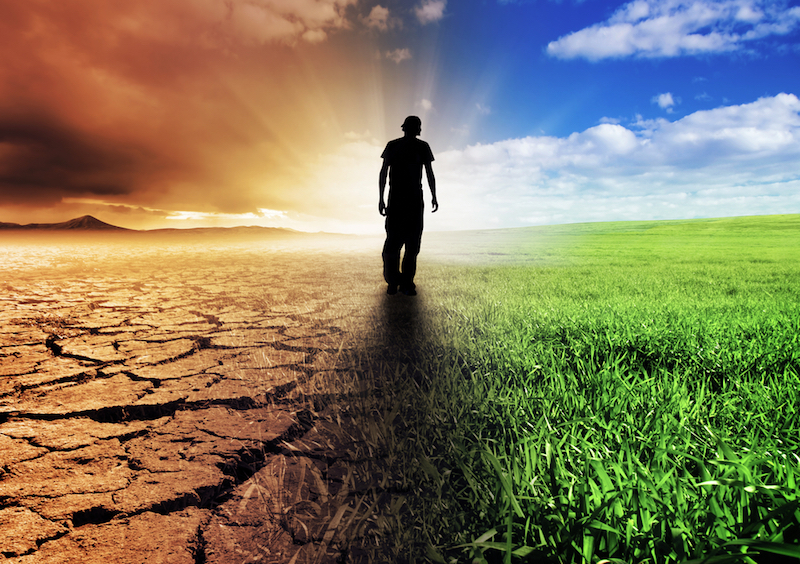
By Kofi Adu Domfeh
Climate change is the biggest global management challenge of the moment.
It has emerged as a major factor affecting people, livelihoods, environment and economies.
Climate change is a long-term shift in the weather conditions, caused by both natural and anthropogenic – human – factors that lead to the emission of greenhouse gases into the atmosphere.
The rate of future climate change depends on current and future human-caused emissions.
The effects of climate change – temperature rise/scorching sun and erratic but torrential rainfall – could be devastating on agriculture, water, forests, energy, biodiversity and health.
A drop in water levels of a hydro plant means a shortfall in energy generation; poor rains result in reduced crop production; excessive heat spreads bushfire and loss of plants and animals; diseases abound in heat and cold conditions.
Adequate responses to the changes in climatic conditions will involve a reduction in emissions – known as mitigation – to limit future threats, and also devising coping mechanisms – know as adaptation – to the unavoidable changes or impacts.
The impacts of climate change are compounded when illegal mining is allowed to thrive with its attendant destruction of land and water resources; when trees in forest reserves are fell with impunity; and when water bodies, wetlands and natural habitats are haphazardly compromised for urban development.
Everyone wants land in the city, not for farming but to build homes, offices, malls, among others.
Unfortunately, such development infrastructure becomes fragile as climate information in building bridges and other infrastructure is often amiss in urban development planning.
Knowing where flood waters will go when new projects are constructed in cities is critical to cope with the changes.
The recent Paris Climate Agreement offers opportunities for developing countries to efficiency adapt to the impacts of climate change.
Climate finance and technology transfer remain critical for vulnerable economies in Africa and other developing economies to survive the future.
However, local initiatives and actions will also be important to cope with the expected changes:
Water harvesting is a means to curtail flooding and improve urban air quality and adapt to climate change; Climate-smart agriculture will promote agro-forestry and ensure effective land and water management; Climate information surveys would be relevant to the agriculture and other sectors of the economy.
There are some measures and mechanisms to combat the devastating impacts of climate change but action, committed action is what is required for results.
Degradation can be reversed when land is sustainably managed.
Sustainable land management strategies and practices have the potential to increase the resilience of farmers and communities to climate change.
These practices include management of crops, livestock, forestry and rainwater to help conserve water and soil for increased food production and also reduction in emission of carbon dioxide and other harmful chemicals into the atmosphere.
One of the most important things to do for a secured future is to plant more trees than is currently harvested to allow for carbon sequestration to mitigate the impacts of climate change.










